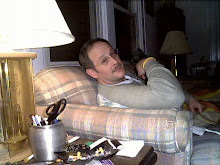And so it begins. Barack Obama, who fancies himself a modern day Abraham Lincoln, embarked this morning on the final leg of his journey to the nation's capital for his inauguration. He departed Philadelphia by train following the last leg of Abraham Lincoln's route to Washington for his inauguation.
The President-elect likes drawing upon Lincoln's legacy. He enjoys making comparisons between himself and the Great Emancipator and there are, indeed, some similarities. Like Lincoln, Obama was narrowly elected on the heels of an unpopular presidency held by the opposing party. Like Lincoln, Barack Obama faces a nation deeply divided over issues of momentous import to the future of the nation. One way or the other, the decisions Lincoln would make during his tenure would determine the course of the nation for generations. Likewise with Obama. Lincoln, presented with a nation whose Union was rapidly disintegrating called upon those in the South in vain to refrain from secession; Obama realizing that the hoopla over his election is not nearly so widespread as the media would have the public believe is also calling for unity.
Now for the differences.
Lincoln ascended to the White House at a time marked by States in open rebellion to the authority of the federal government. More were preparing to make similar moves. He took the reins of a government woefully prepared for a physical threat to its existence. In such a situation he had no option but to take unprecedented and perhaps unconstitutional steps to secure to the Executive powers which the Founding Fathers never intended the President to have. He arrested, and even exiled political opponents, suspended the writ of habeas corpus, ignored the opinions of the Supreme Court. He used extraordinary powers to meet the exigencies of an extraordinary situation. Lincoln faced the business of settling issues left unaddressed by the Founding Fathers in the Constitution.
Obama seeks another goal. He seeks the recastin gof the Constitution in the light of personal liberty. He seeks the redefinition of Constitutional rights as license, not liberty. He places the attainment of personal wants above the common good. He seems possessed of a view that we need to be protected from our personal resposnibilities and that the federal government is the institution best equipped to shield us from ourselves. Already his supporters clamor to muzzle conservative voices, already he seeks to save us from the responsibility incurred through our misused sexuality.
Lincoln always cast his struggle as one to preserve the Union. The tragedy of the Civil War was not waged, in his estimation, over the issue of slavery, although it played a role in bringing the crisis to a head. The tragedy he was compelled to prevent was the dissolution of the Union. He saw slavery as an intrinsic evil, and if he could save the Union and at the same time eradicate slavery, so be it. Lincoln was, after all, a consummate opportunist.
Abortion is the slavery issue of our time. It marks the great difference between two philosophies of government. On the one hand is government s the enforcer of positive restrictions which reinforce the importance of individual responsibility, on the other the government as savior of those who choose to abrogate individual responsibility. Licoln would have had none of this silliness.
Til next time all the best. Joe
My new blog: The Radical Life
12 years ago

No comments:
Post a Comment